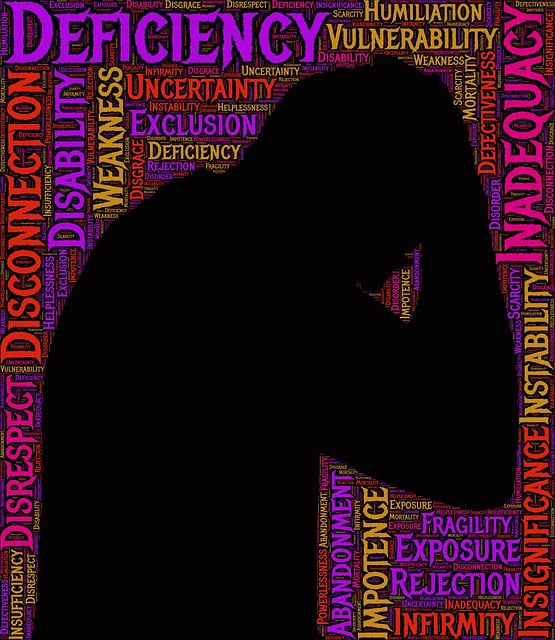Alcohol abuse among the elderly poses unique challenges requiring specialized therapy, with a focus on self-esteem improvement. Crisis Intervention Teams (CITs) play a vital role in supporting older adults in crisis, utilizing Mind Over Matter principles and engaging in community outreach to reduce stigma. Training programs equip caregivers and professionals with skills to identify distress signals, understand elder alcohol abuse, and implement effective therapy strategies, promoting long-term mental wellness through empathy building and self-awareness techniques. Innovative components like mental wellness podcasts enhance learning and offer ongoing resources for best practices in therapy for elders struggling with alcohol abuse.
Crisis intervention team training programs are crucial in addressing a pressing issue: elder alcohol abuse. With growing awareness, understanding elder alcohol abuse as a growing concern is essential. These specialized teams play a vital role in providing immediate support and guidance to caregivers and professionals navigating this complex issue. Through comprehensive training programs, they equip themselves with the skills needed to offer effective therapy for elders struggling with alcohol addiction, fostering better outcomes and quality of life.
- Understanding Elder Alcohol Abuse: A Growing Concern
- The Role of Crisis Intervention Teams in Support
- Training Programs: Equipping Caregivers and Professionals
Understanding Elder Alcohol Abuse: A Growing Concern

Alcohol abuse among elderly individuals is a growing concern that demands increased attention and specialized interventions. As our population ages, so does the prevalence of substance use disorders, with alcohol being one of the most commonly abused substances. The unique challenges faced by older adults, such as physical health decline, social isolation, and cognitive changes, contribute to the complexity of addressing their alcohol abuse issues. Recognizing these patterns early is crucial for effective crisis intervention team (CIT) training programs.
The impact of alcohol abuse on an elderly person’s mental wellness cannot be overlooked. It often leads to exacerbation of existing mental health conditions or even contributes to the development of new ones, such as depression and anxiety. The Mental Wellness Podcast Series Production highlights the importance of integrating therapy for elders with alcohol abuse into CIT training. Equipping professionals with the skills to recognize and respond to these issues can make a significant difference in their lives. Moreover, Risk Management Planning for Mental Health Professionals emphasizes the need for structured interventions, considering self-esteem improvement as a key factor in successful recovery, especially among this demographic.
The Role of Crisis Intervention Teams in Support

Crisis Intervention Teams (CITs) play a pivotal role in supporting individuals facing various crises, with a particular focus on older adults suffering from alcohol abuse. These teams are designed to offer immediate assistance and guidance during moments of heightened distress or vulnerability. By integrating therapy for elders with alcohol abuse issues into their training, CITs can provide tailored interventions that address the unique challenges faced by this demographic. The Mind Over Matter principles, which emphasize the power of mental resilience and coping strategies, form a core aspect of these programs, helping individuals regain control and make positive changes in their lives.
Beyond direct crisis support, CIT members often engage in community outreach program implementations and mental illness stigma reduction efforts. They collaborate with local organizations to raise awareness about alcohol abuse among older adults, dispel misconceptions surrounding mental health issues, and offer accessible resources for those in need. These multifaceted initiatives ensure that the support extends beyond immediate intervention, fostering a more supportive and understanding environment for individuals grappling with alcohol-related crises and mental illnesses.
Training Programs: Equipping Caregivers and Professionals

Crisis intervention team training programs play a pivotal role in equipping caregivers and professionals with essential tools to handle and prevent potential crises, especially among elders. These comprehensive courses delve into various aspects, including identifying signs of distress, understanding alcohol abuse in older adults, and implementing effective therapy strategies. By combining theoretical knowledge with practical exercises, participants gain valuable insights into empathy building strategies and self-awareness exercises, enabling them to offer immediate support while promoting long-term mental wellness.
Moreover, many programs incorporate innovative components such as the production of a mental wellness podcast series. This multimedia approach not only enhances learning but also provides ongoing resources for practitioners to stay updated on best practices in elder care. Through these training initiatives, caregivers and professionals are better prepared to navigate complex situations, fostering a supportive environment that addresses the unique challenges faced by elders in need.
Crisis intervention team training programs are invaluable tools in addressing elder alcohol abuse, a growing concern within our society. By equipping caregivers and professionals with the necessary skills, these programs enable effective support for elders struggling with this issue. Through comprehensive training, participants gain the confidence to recognize signs, provide immediate assistance, and facilitate access to appropriate therapy for elders alcohol abuse, ultimately fostering better outcomes for those in need.









